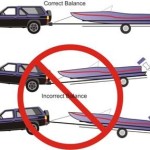Posted on 4/7/2015
WE OFFER SAFETY CHECKS FOR ALL TRAILERS AND VEHICLES We have trained specialist on site for your safety check and proper towing needs. PRE-DEPARTURE SAFETY CHECKLIST Before driving, make sure your vehicle maintenance and trailer maintenance are current. This is very important because towing puts additional stress on the tow vehicle. Check and correct tire pressure on the tow vehicle and trailer. Make sure the wheel lug nuts/bolts on the tow vehicle and trailer are tightened to the correct torque. Be sure the hitch, coupler, draw bar, and other equipment that connect the trailer and the tow vehicle are properly secured and adjusted. Check that the wiring is properly connected— not touching the road, but loose enough to make turns without disconnecting or damaging the wires. Make sure all running lights, brake lights, turn signals, and hazard lights are working. Verify that the brakes on the tow vehicle and trailer are operating correctly ... read more
Posted on 4/7/2015

SAFETY TIPS Take time to practice before driving on main roads and never allow anyone to ride in or on the trailer. Before you leave, remember to check routes and restrictions on bridges and tunnels. Consider the following safety tips each time you drive with a trailer. General Handling Use the driving gear that the manufacturer recommends for towing. Drive at moderate speeds. This will place less strain on your tow vehicle and trailer. Trailer instability (sway) is more likely to occur as speed increases. Avoid sudden stops and starts that can cause skidding, sliding, or jackknifing. Avoid sudden steering maneuvers that might create sway or undue side force on the trailer. Slow down when traveling over bumpy roads, railroad crossings, and ditches. Make wider turns at curves and corners. Because your trailer’s wheels are closer to the inside of a turn than the wheels of your tow vehicle, they are more likely to hit or ride up over curbs ... read more
Posted on 4/7/2015
1. Essential Propane Tank Know-How From refueling to inspecting the exhaust system, propane tank operation and maintenance is a big job. And although propane tanks are deemed safe for RV travel, there are some key tips to help ensure an enjoyable ride: No matter how big a home-town fan you are, never paint your tank a dark color, which more readily absorbs the sun’s rays and can cause the tank to overheat and explode. Don’t travel with the stove, oven or heater burners lit. Never refuel while any propane appliance, or the engine, is running. Make sure older propane tanks are checked to ensure they have an overfill protection device and check intake and exhaust vents for birds nests and other blockages. Avoid refrigerator fires (powered by propane). Have your propane tank regularly checked by a certified dealer to ensure lines are in good shape and that they are not leaking. Install a propane gas detector. 2. Conduct a Pre-Drive Safety Check ... read more